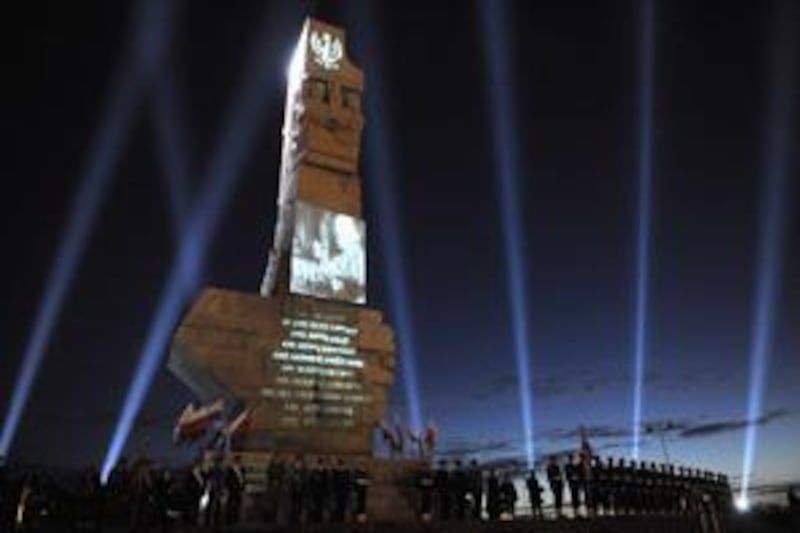Nearly 20 European leaders gathered have on Poland's Baltic coast to mark the 70th anniversary of the outbreak of World War Two, when a German ship fired on a Polish base on the Baltic. Poland's president Lech Kaczynski, joined by diplomats and veterans, paid tribute to the victims of the conflict which was to claim an estimated 60 million lives. For Poles the memorial events centre on Westerplatte symbolises heroic resistance against overwhelming odds: its 180 soldiers held out for seven days against 3,500 Germans. The small Polish base was attacked on Friday, September 1, 1939 by the German battleship Schleswig-Holstein, which was on a purported goodwill visit. The ship had been ordered by the Nazi dictator Adolf Hitler to open fire at 4.45 am, which is seen as the start of the conflict. The German chancellor Angela Merkel and the Russian prime minister Vladimir Putin joined the event in remembering history's bloodiest conflict, whose legacy endures and divides to this day. Mrs Merkel said that her country had unleashed "endless suffering" by starting World War Two but recalled the fate of ethnic Germans expelled at the end of the conflict. "Germany attacked Poland, Germany started World War Two. We caused unending suffering in the world. 60 million dead ... was the result," Mrs Merkel said on German television. "But the expulsion of well over 12 million people from areas of the former Germany and present-day Poland is of course an injustice. This must also be recognised." * Agencies
War wounds remain raw
Nearly 20 European leaders have gathered on Poland's Baltic coast to mark the 70th anniversary of the outbreak of World War Two.

Editor's picks
More from the national





